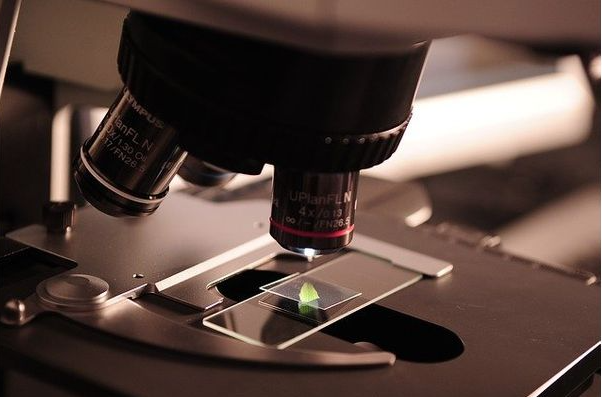New research identifies more than 1,000 genes linked to severe COVID-19

Using machine learning, researchers from the University of Sheffield and Stanford Medicine have identified more than 1,000 genes linked to the development of severe COVID-19 cases that required breathing support, or were fatal.
Researchers from the University of Sheffield and Stanford University, US, have discovered that there are specific genetic signals in people who develop severe coronavirus infection.
It is known that age, body mass index and pre-existing health problems account for some of the disparities, but genetics also play a significant role. This research aimed to address why some people with COVID-19 become seriously ill or die, whilst others have few, if any, symptoms.
Using machine learning, researchers from the University of Sheffield and Stanford Medicine have identified more than 1,000 genes linked to the development of severe COVID-19 cases that required breathing support, or were fatal. The team was also able to identify specific types of cells in which those genes act up. It’s one of the first studies to link coronavirus-associated genes to specific biological functions.
Dr Johnathan Cooper-Knock, NIHR Clinical Lecturer in the Department of Neuroscience at the University of Sheffield and co-author of the study said, “During the research we discovered the genetic architecture underlying coronavirus infection, and found that these 1,000 genes account for three quarters of the genetic drivers for severe COVID-19. This is significant in understanding why some people have had more severe symptoms of COVID-19 than others.”
The study, published in the journal Cell Systems, was led by Senior Author Professor Michael P Snyder from the University of Stanford in collaboration with genetics instructor Dr Sai Zhang and neuroscientist Dr Cooper-Knock, who is currently a Stanford visiting scholar.
Other data came from the COVID-19 Host Genetics Initiative, one of the largest genetic studies of critically ill coronavirus patients. The researchers looked for genetic clues in the data-DNA mutations, called single nucleotide polymorphisms that might indicate if someone is at a higher risk for severe COVID-19. They tracked whether some mutations occurred more or less often in COVID-19 patients with severe disease. Mutations that continued to appear, or were notably absent, in the patients who developed severe COVID-19 suggested those variations might be behind the infection’s severity.
But genetic mutations on their own can be difficult to interpret. To better understand their findings the team used other data describing which regions of the genome are important for different cell types within lung tissue. By overlapping the mutations onto the cell-specific genomes the researchers could pinpoint which genes were dysfunctioning and within which cell-types.
The researchers also wanted to know which types of cells harbored faulty gene expression. Through their machine learning tool, they determined that severe COVID-19 is largely associated with a weakened response from two well-known immune cells — natural killer (NK) cells and T cells. NK cells and a subtype called ‘CD56 bright’ are considered the most important.
Dr Cooper-Knock added, “NK cells, which humans are born with and are the body’s first line of defense against infection, are known for their ability to destroy viruses and cancer cells. NK cells also help produce a range of immune system proteins called cytokines. One cytokine, interferon gamma, is a key activator of immune cells. Acting in concert with interferon gamma, NK cells mount an immediate and coordinated defense against viral infections. NK cells are like the generals directing the war. They mobilise other immune cells, telling them where to go and what to do. We found that in people with severe coronavirus infection, critical genes in NK cells are expressed less, so there’s a less robust immune response. The cell isn’t doing what it’s supposed to do.”
Professor Snyder likened COVID-19 risk genes to harmful variants of the BRCA genes that predispose some people to breast and ovarian cancer.
Professor Snyder said, “Our findings lay the foundation for a genetic test that can predict who is born with an increased risk for severe COVID-19. Imagine there are 1,000 changes in DNA linked to severe COVID-19. If you have 585 of these changes, that might make you pretty susceptible, and you’d want to take all the necessary precautions.”
Dr Cooper-Knock also noted drugs that kickstart sluggish NK cells are already proposed to treat some types of cancer. “The drugs bind to receptors on the NK cells and trigger them to have a more robust response,” he said. Trials of NK cell infusions for severe COVID-19 are underway.”
Source:
EH NEWS BUREAU
On Jun 15, 2022
声明:本站文章版权归原作者及原出处所有。本文章系本站编辑转载,文章内容为原作者个人观点,登载该文章的目的是为了学习交流和研究,并不代表本站赞同其观点和对其真实性负责,本站只提供参考并不构成任何投资及应用建议。
本站是一个学习交流和研究的平台,网站上部分文章为引用或转载,并不用于任何商业目的。我们已经尽可能的对作者和来源进行了告知,但是能力有限或疏忽,造成漏登或其他问题,请及时联系我们,我们将根据著作权人的要求,立即更正或删除有关内容。本站拥有对本声明的最终解释权。








